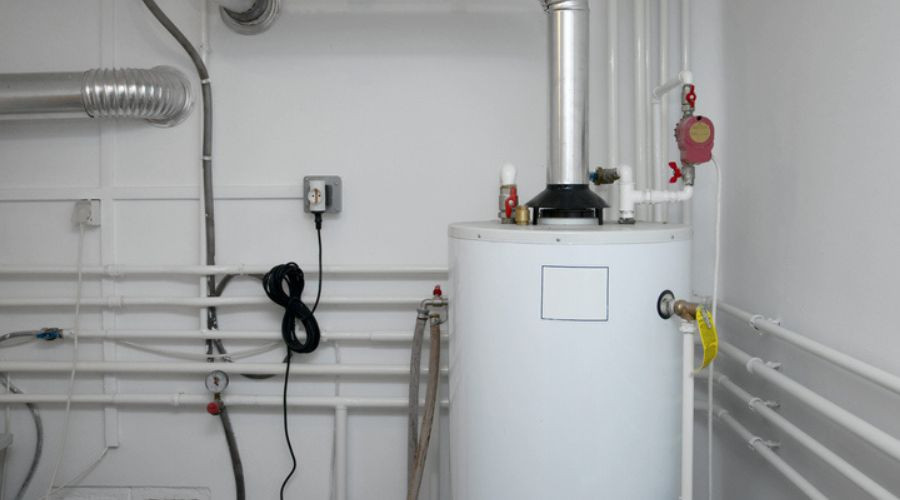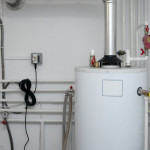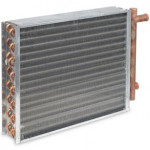3 Things You Might Not Know About Your Boiler
One of the best ways to celebrate Valentine’s Day is to cuddle up with one’s sweetheart for a romantic evening at home. But nothing spoils the mood like feeling the February chill come creeping into the house. So if the home’s heating system isn’t working correctly, romantic bliss may be hard to come by this Valentine’s Day.
That’s one reason it benefits homeowners to get to know their heaters a little better: to keep the unit running smoothly and recognize when there might be a problem. After all, HVAC systems need a little love and attention, too! And perhaps the most misunderstood of all central heating systems is the boiler - they tend to be less common than furnaces or heat pumps, which can make them seem a little intimidating and mysterious. So this article will lay out three things every homeowner should know about their boiler!
Most Boilers Don’t Actually Boil Water
 The first fact homeowners should be aware of is that, despite the name, modern boilers don’t boil water. While it’s true that early boilers used to boil water to produce steam for heat, these units were largely phased out by the last half of the 20th century. Instead, today’s boilers typically heat water to a range of about 145-190 degrees Fahrenheit, well short of water’s boiling point of 212 degrees.
The first fact homeowners should be aware of is that, despite the name, modern boilers don’t boil water. While it’s true that early boilers used to boil water to produce steam for heat, these units were largely phased out by the last half of the 20th century. Instead, today’s boilers typically heat water to a range of about 145-190 degrees Fahrenheit, well short of water’s boiling point of 212 degrees.
This is achieved using natural gas, oil, or electric induction to heat water via a heat exchanger. From there, the hot water is pumped throughout the home to radiators, baseboard heaters, or radiant floor heaters, which give off the water’s heat into various rooms. As the water cools, it returns to the boiler unit to be heated again until the desired indoor temperature is reached.
Boilers Can Be Highly Eco-Friendly Heating Systems
One common misconception about boilers is that they use a lot of water. In fact, they continually recycle water in a closed system, so they don’t have any significant impact on a home’s water usage. Boilers are also highly energy efficient since they tend to experience less heat loss than forced-air heating systems.
Of course, as efficient and affordable as they are, natural gas and oil release some degree of carbon emissions. But today’s boiler manufacturers are developing new technology to make boilers even more eco-friendly. Condensing boilers, for instance, recapture heat energy from “waste” gas in the exhaust flue, making them highly energy-efficient.
If homeowners aren’t sure what kind of boiler they have, its efficiency rating, or how old it is, they would do well to consult with their HVAC specialist about a possible upgrade. Installing a new energy-efficient boiler isn’t just better for the environment but can also save homeowners money on utilities!
Low Pressure Can Hurt a Boiler’s Efficiency
 Another thing every homeowner should be mindful of is the importance of maintaining normal boiler pressure. Most people intuitively know that excessively high pressure is bad - no, the boiler won’t explode (thanks to the pressure relief valve), but it can still damage the system. But low boiler pressure can have negative consequences as well.
Another thing every homeowner should be mindful of is the importance of maintaining normal boiler pressure. Most people intuitively know that excessively high pressure is bad - no, the boiler won’t explode (thanks to the pressure relief valve), but it can still damage the system. But low boiler pressure can have negative consequences as well.
Low pressure usually occurs if there’s a leak in the boiler system (be it a pipe or inside the boiler unit itself) or the radiators have recently been bled. Trapped air in the system or inadequate maintenance may also be to blame. When the pressure gets too low, the unit will no longer be able to operate at peak efficiency, which can cause energy bills to rise as the unit works harder and burns more fuel to achieve the desired temperature.
Low pressure can also increase wear and tear on the boiler, shortening its lifespan. Needless to say, this is a problem homeowners will want to avoid. Generally, the boiler’s pressure gauge should read between 1-2 bar, but homeowners should consult their owner’s manual for a specific number. If the pressure is too low, it’s a good idea to contact a professional to diagnose the issue and recommend a solution - so the house can stay efficient, warm, and cozy for many more romantic evenings to come!
About Korte Does It All, Inc.
Korte Does It All, Inc. has more than 50 years of experience serving Fort Wayne, IN, and the surrounding areas for all things HVAC, plumbing, and electrical. They offer 24/7 live answers, fast response times, and financing. Call them today for boiler repair and installation services in Fort Wayne, IN.

































